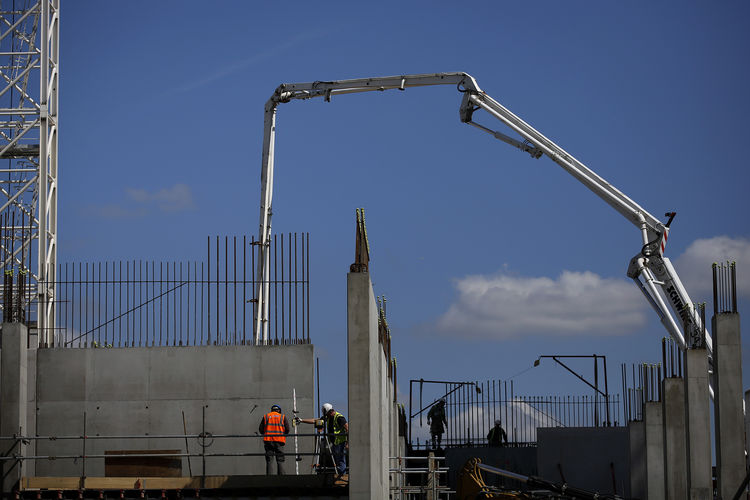- Construction Industry in Critical Need of Reforms — Onashile
The construction industry is in a critical situation and requires urgent reforms to make it function optimally and more profitably, the President, Nigerian Institute of Quantity Surveyors, Mr Obafemi Onashile, has said.
Onashile said after agriculture, construction was the next biggest employer of labour, engaging at least five per cent of the workforce and about two per cent of the nation’s population, with its products serving as the backbone of economic growth.
He, however, stated that the industry had been severely challenged in recent times, reducing its contribution to nation building and economic growth.
He said, “Construction is a very diverse industry that includes activities ranging from mining, quarrying and forestry to the construction of buildings and infrastructure, the manufacturing and supply of products as well as maintenance, operation and disposal.
“The industry services three main sectors of commercial and social; residential; and infrastructure. Construction activities are high-cost, high-risk, long-term activities and best used to control the economy. Its performance is a good indicator of the health of the economy. But the situation of the industry has been critical. We are clamouring for changes and reforms.”
According to Onashile, as important and strategic as the industry is, it is fraught with various ills and inefficiencies, including lack of cohesion; lack of progressive direction as it works at cross-purposes; too many abandoned projects; domination by one or two disciplines; as well as rigid and reluctant to innovate stakeholders.
Others problems are urbanisation, which comes with housing deficiency; degradation of urban environment and over-stretched infrastructure; high construction costs; lack of jobs, because the government is not building enough infrastructure; non-payment of contractors and consultants; limited availability of skilled labour; and lack of recognised and friendly skills acquisition and training programmes, among others.
He said there had also been gradual but persistent lowering of quality of construction materials, high rate of injuries and deaths on construction sites, and lack of consensual industry crafted policies and roadmaps for industry growth.
“All these manifest in corruption, lack of progress, discouragement, mobility of brilliant minds to other sectors and countries, and non-development of the nation,” Onashile added.
He stated that the way forward would be for the government to work with professionals in the built environment to create a roadmap for growth.
He also called for the urgent formation of the Construction Industry Development Board or Construction Industry Development Council as a leadership body of the industry.
The NIQS president noted, “A partnership between the government and the construction industry will get the industry to produce and export, thus consciously improving our Gross Domestic Product. Government should also increase the supply of construction products by being more active in social housing and producing houses for the civil service workers as well as for others in the public service.
“The government should embark on strategic infrastructure development and expansion that will boost the GDP; for instance, the NLNG Train 7 production, seaports development and discharge routes into the hinterland; and adopt modern procurement systems, procedures and processes to run the industry more efficiently; for instance, apart from the traditional procurement system, the adoption of other formal procurement systems such as the design and build systems, construction management systems, project management systems.”
He stated that there should be the urgent formation of the Construction Industry Training Board or Construction Industry Training Council, a body of government and industry collaboration to actively promote and manage technical and vocational training of skills for the industry.
“This may involve subsidised or attractively sponsored training programmes. There should also be urgent creation of purpose-fit juridical systems for the industry and the creation of construction courts in the judiciary systems, with the enactment of laws recognising and promoting faster dispute resolution mechanisms such as adjudication and mediation,” he added.
Onashile said that above all, there should be greater promotion of health and safety in construction to make the industry more attractive.

 Billionaire Watch3 weeks ago
Billionaire Watch3 weeks ago
 Startups4 weeks ago
Startups4 weeks ago
 News4 weeks ago
News4 weeks ago
 News4 weeks ago
News4 weeks ago
 Bitcoin4 weeks ago
Bitcoin4 weeks ago
 Naira4 weeks ago
Naira4 weeks ago
 Forex3 weeks ago
Forex3 weeks ago
 Treasury Bills4 weeks ago
Treasury Bills4 weeks ago

























